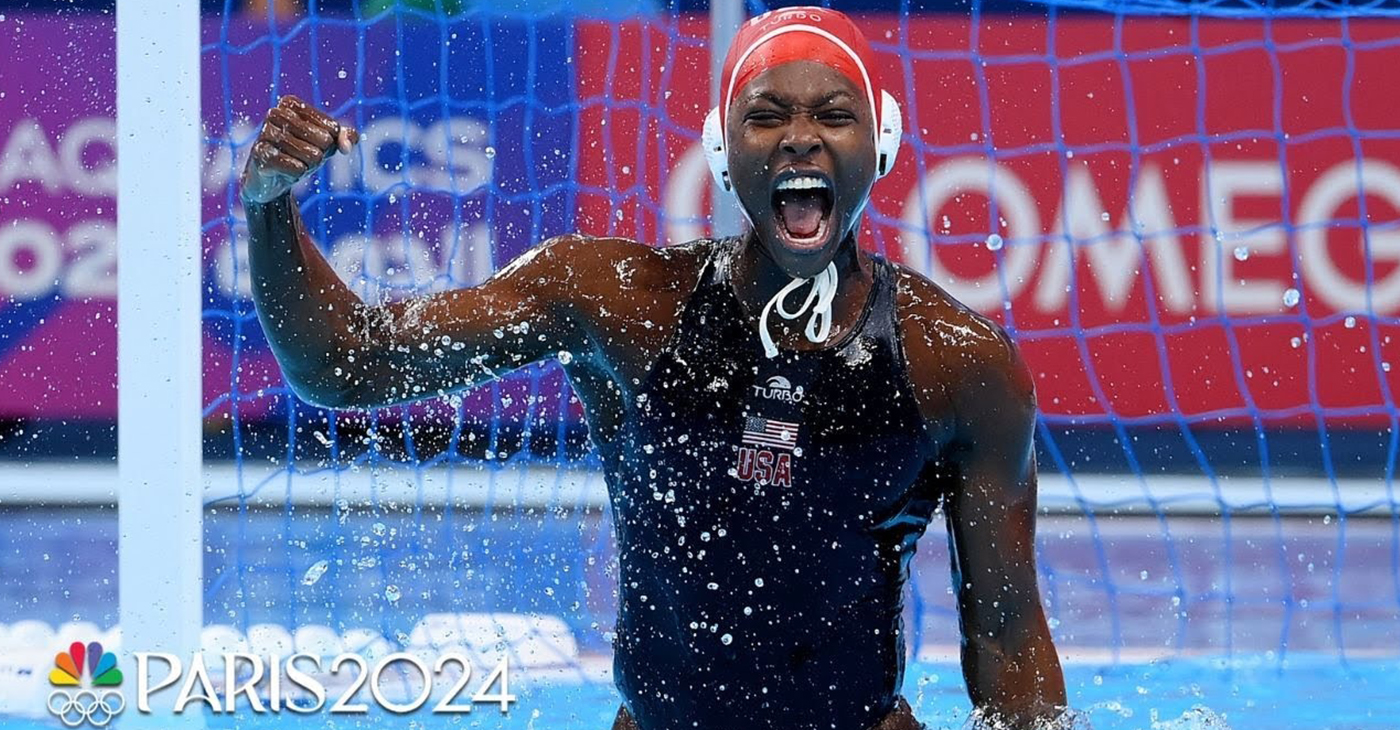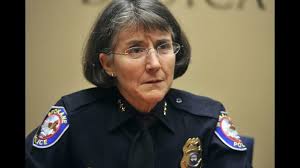Sports
Long After Twitter Feud, Revis, Sherman Pledge Respect

Seattle Seahawks’ Richard Sherman answers questions during media day for NFL Super Bowl XLIX football game Tuesday, Jan. 27, 2015, in Phoenix. (AP Photo/Charlie Riedel)
BOB BAUM, AP Sports Writer
PHOENIX (AP) — Darrelle Revis long reigned supreme among NFL cornerbacks.
Then came along this upstart Richard Sherman, who proclaimed himself the best and backed it up.
Now they get to state their case on the NFL’s biggest stage — Revis’ New England Patriots against Sherman’s Seattle Seahawks in the Super Bowl.
They have a bit of history, these two — a Twitter feud from a couple of years ago. The gist of it: Revis was the proven pro and Sherman hadn’t done enough yet to start crowing.
At Tuesday’s media day, any animosity was buried. Each expressed respect for the other, although Revis referred to the fact that in Seattle’s defense, Sherman plays only half the field.
“Sherman, he plays left corner and he does great,” Revis said. “He’s great at what he does. I’m not really knocking him on what he does. He’s a playmaker and that’s what he does for his team.”
Cornerback, Revis said, is “by far” the hardest position to play in football.
The handful of those who excel at the position may bicker, Sherman said, but they share a common bond.
“There’s a respect level between elite cornerbacks in the National Football League,” he said. “It takes a certain mentality to play at a high level in this game, to deal with the pressure, to deal with the intensity of being out there against the best athletes in the world. … There’s a definite admiration for their ability.”
Sherman’s a talker — opinionated, self-assured. He says he cares little what people think of him.
“It doesn’t bother me too much, honestly,” he said. “I kind of go to the beat of my own drum. … I have my own way of doing things and it might not align with everybody, but I’m going to keep it that way.”
Sherman stirred up trouble shortly after the Seahawks landed in Arizona, when, referring to the fairness of the investigation into deflated footballs, he noted NFL Commissioner Roger Goodell and Patriots owner Robert Kraft are good friends.
Sherman didn’t back down Tuesday, saying that he found their relationship “interesting.”
A small crowd gathered around Revis on media day. Sherman drew a mob, and he reveled in it, answering bizarre questions — such as, what super power would he like to have while playing? (He would fly). He danced with a woman reporter, confidently showing his moves.
He said he was sure his girlfriend, due soon to deliver the couple’s first child, would not have the baby on Super Bowl Sunday.
To the young Seattle star, media day was no chore.
Sherman earned a Super Bowl ring last year, in his third NFL season. Revis is playing in the big game for the first time in his eight years in the league.
For the first six, he played for the New York Jets, becoming “Revis Island.” Twice he made it to the AFC championship game, but no farther.
Revis and the Jets parted ways after an injury-plagued 2012, and he landed with the Patriots, the team he had fought without much success for so long.
“It’s pretty awesome,” Revis said. “I mean, this is what you play for every year. In the offseason you work hard to get to this point and when you get there, like right now, it’s so surreal for me.”
He wouldn’t address his future with the team. New England reportedly wants him back, but not on the terms of his existing contract, which would count $25 million on next season’s salary cap. He’s due a $12 million roster bonus on April 1.
But for one year, he has been all-in.
“I think I really embraced it when I sat down with Mr. Kraft and (coach) Bill (Belichick) and we had a one-on-one conversation,” Revis said. “It was a very chill conversation. … At that point, I felt very comfortable and wanted to join the team.”
Sherman said his left elbow, hurt in the NFC championship win over Green Bay, “is feeling pretty good.”
“It’s been good all week,” he said. “I’m done getting treatment.”
And he shrugged off cornerback Brandon Browner’s suggestion that he would tell his New England teammates to break Sherman’s elbow.
“I think he was just caught up in the moment,” Sherman said. “He didn’t mean any malice by it. It’s one of those things, we know him as a person and sometimes he exaggerates a little bit.”
Far be it for Sherman, of all people, to be bothered by a pointed remark from a foe.
___
AP NFL website: www.pro32.ap.org and www.twitter.com/AP_NFL
Copyright 2015 The Associated Press. All rights reserved. This material may not be published, broadcast, rewritten or redistributed.
Black History
Ashleigh Johnson: Pioneering the Way in Water Polo
Ashleigh Johnson attended Princeton University, where she played for the Tigers and dominated collegiate water polo. During her time at Princeton, she became the program’s all-time leader in saves and was recognized for her extraordinary ability to anticipate plays and block shots. She was a three-time All-American and was pivotal in leading her team to multiple victories. Balancing rigorous academics and athletics, she graduated with a degree in Psychology, showcasing her determination both in and out of the pool.

By Tamara Shiloh
Ashleigh Johnson has become a household name in the world of water polo, not only for her incredible athleticism and skill but also for breaking barriers as the first Black woman to represent the United States in the sport at the Olympic level. Her journey begins as a determined young athlete to a record-breaking goalkeeper.
Born on September 12, 1994, in Miami, Florida, Ashleigh grew up in a family that valued sports and academics. She attended Ransom Everglades School, where she was introduced to water polo. Despite water polo being a niche sport in her community, she quickly stood out for her remarkable agility, intelligence, and reflexes. Her unique skill set made her a natural fit for the demanding role of a goalkeeper.
Ashleigh attended Princeton University, where she played for the Tigers and dominated collegiate water polo. During her time at Princeton, she became the program’s all-time leader in saves and was recognized for her extraordinary ability to anticipate plays and block shots. She was a three-time All-American and was pivotal in leading her team to multiple victories. Balancing rigorous academics and athletics, she graduated with a degree in Psychology, showcasing her determination both in and out of the pool.
In 2016, Ashleigh made history as the first Black woman to be selected for the U.S. Olympic Water Polo Team. Representing her country at the Rio Olympics, she played a crucial role in helping Team USA secure the gold medal. Her stellar performances earned her the distinction of being named the tournament’s top goalkeeper, further cementing her status as one of the best players in the sport’s history.
Ashleigh didn’t just stop at one Olympic appearance. She continued her dominance in water polo, playing a key role in Team USA’s gold medal win at the 2020 Tokyo Olympics. Her ability to remain composed under pressure and deliver outstanding saves in crucial moments made her an irreplaceable member of the team.
At the age of 29, Johnson appeared in her third Olympiad in Paris at the 2024 Summer Olympics. Their first match was against Greece and the US team won easily and Johnson only gave up 4 points. U.S. Olympic head coach Adam Krikorian shared, “She’s an incredible athlete. She’s got great hand-eye coordination, great reflexes and reactions. And then she’s fiercely competitive – fiercely. And you would never know it by her demeanor or by the huge smile on her face. But to us, on the inside, we know how driven she is to be one of the best ever to do it.”
Team USA Women’s Water Polo ended their Olympic season in fourth place after a 10 – 11 loss to the Netherlands. Johnson only allowed 37 percent of the shots from the Netherlands.
Beyond her achievements in the pool, Ashleigh has used her platform to advocate for diversity in water polo and sports in general. As a trailblazer, she recognizes the importance of representation and works to encourage young athletes, particularly those from underrepresented backgrounds, to pursue their dreams.
Ashleigh has spoken about the challenges she faced as a Black woman in a predominantly white sport and how she turned those obstacles into opportunities for growth.
Business
Sacramento Kings and Black-Owned Digital License Plate Firm Enter History-Making Partnership
Reviver founder and Chief Strategy Officer Neville Boston attended the Sacramento Kings’ season opener at Golden 1 Center, witnessing players debut the company’s patch. Reviver proudly supports the Sacramento Kings’ community and diversity, equity, and inclusion initiatives. Photo by Antonio Ray Harvey, California Black Media (CBM).

By Antonio Ray Harvey, California Black Media
Reviver, the world’s first digital license plate and connected vehicle platform, has entered into a history-making jersey patch partnership with the Sacramento Kings, team officials announced right before the team’s season opener on Oct. 24.
The collaboration establishes Reviver as the first Black-founded technology jersey patch partner in the National Basketball Association (NBA).
The Reviver logo now appears on the left front strap of Kings’ uniforms.
Reviver founder and Chief Strategy Officer Neville Boston was in attendance to see the company’s patch worn by the Kings, during a game with the Minnesota Timberwolves at Golden 1 Center in downtown Sacramento.
“It was an absolutely amazing night. More than I ever expected,” Boston told California Black Media (CBM). “The Sacramento Kings have been incredible. On a national, and maybe a worldwide level, this partnership raises the profile of Reviver with the assistance of (Kings chairman and CEO) Vivek Ranadivé and the Kings.”
According to the Kings’ brass, Reviver, supported by the Black Star Fund, a Black-led venture capital firm based in Sacramento, is now an official “innovation partner” of the Kings and Golden 1 Center; a presenting partner of “Capitalize Technology,” a King’s corporate social investment initiative; and the exclusive digital license plate of the Sacramento Kings.
Headquartered in Granite Bay, a suburb of Sacramento, Reviver was born from a vision to modernize and streamline the vehicle registration renewal process. On Jan. 1, 2023, the state of California joined Georgia, Colorado, Michigan, and Arizona as states that have approved digital license plates for use statewide, after Reviver completed a four-year pilot program that evaluated a replacement for metal plates.
About 10,000 California drivers bought digital plates during the pilot program. Vehicles registered with the state are eligible to adopt the new high-tech tags. Reviver existence was made possible when Gov. Gavin Newsom signed Assembly Bill (AB) 984 in September 2022.
Under that law, California vehicle owners can update their titles, registrations, and other records remotely. In addition, the digital license “RPlate” includes a flashing message if a vehicle is reported stolen or if there is an Amber Alert.
Ranadivé is spreading the news that Reviver has international potential.
“This jersey patch partnership with Reviver continues the Kings long tradition of using our global platform to promote innovation and technology,” Ranadivé stated. “It’s particularly exciting to showcase a homegrown company that was part of our Kings Capitalize program. This is just the beginning of our work together, and we look forward to helping Reviver in its mission to modernize the driving experience.”
The commercial use of patches in professional basketball all began in 2009 when the Women’s Basketball Association (WNBA) Phoenix Mercury removed its name to replace it with sponsor, LifeLock, an identity-theft protection company. The landmark deal netted a contract worth about $1 million annually.
Kindra Montgomery-Block, vice president of diversity, equity, and social impact for the Sacramento Kings, was the integral facilitator who assisted Boston and his team in connecting with the sports franchise that is boasting 40 years in the Capital City.
“This partnership between the Kings and Reviver, backed by the Black Star Fund, will invest in the Sacramento community to promote technology and innovation in the region,” Montgomery-Block stated. “Reviver will support the Sacramento Kings community and diversity, equity, and inclusion initiatives.”
Editor’s Note: Neville Boston is a California Black Media board member.
Black History
Martial Artist Victor Moore: An American Karate and Kickboxing Pioneer
Throughout his career, Moore defeated many national champions, including Joe Lewis, Mike Stone, and Bill “Superfoot” Wallace. Moore placed in every tournament he competed in from 1965 until his retirement in 1975, defeating renowned national champions such as Mike Foster, Chuck Norris, Fred Wren, Glenn Keeney, James Hawkes, and Jim Kelly. Moore emphasizes that winning or losing does not diminish a champion’s credibility — they are all champions in his eyes.

By Tamara Shiloh
Victor Moore, born on Aug. 23, 1943, holds a 10th-degree Black Belt in Karate and is a four-time world karate champion.
As one of the chief instructors under Robert Trias in the Shuri-ryu Karate system, Moore was also among the first ten members of the Trias International Society. Over his 50-year martial arts career, he trained in various styles, including Chito-ryu with William J. Dometrich, Judo, Kempo, and Bondo karate.
Moore began his martial arts journey at the age of 7 in Cincinnati, lifting weights and reading Charles Atlas books to guide his training. By age 9, he had learned the basics of jujitsu and judo, and at 12, he began training in Kempo karate under Ronald Williams, who awarded him his first black belt after five years of instruction.
In 1961, Moore expanded his training by joining a judo school led by Ray Hughes and later trained in Gyu Ryu-karate under Harvey Eubanks. He studied Kempo with Bill Dometrich and continued exploring different karate styles. Instructors at the time, required students to start as white belts in each new style, even if they held black belts elsewhere, which shaped Moore’s adaptability.
Chung Ling, an exchange student from China, introduced Moore and others to Chuan Fa, enhancing Moore’s understanding of martial arts. He also took up judo at a school in Cincinnati, where he earned his brown belt, and trained in karate with Jim Wax, who had studied under the Shimabuku brothers. Moore’s toughness was further honed by his boxing experience at the 9th Street YMCA, where he became a sparring partner for Tiger Joe Harris.
At Central State University, Professor Barry Yasuto trained Moore in Shotokan karate, but Moore was denied entry to the Japanese Karate Association, possibly due to his race. After returning to Cincinnati, Moore opened his first karate school and began competing in national tournaments. He traveled across the U.S., eventually meeting Robert Trias, who became his mentor and helped him rise to the second-degree black belt level. Under Trias, Moore continued training in Kempo and Goju-Ryu styles.
Moore also trained under Dr. Maung Gyi, learning Bondo karate, stick fighting, and kickboxing. In 1973, Moore and Joe Lewis introduced kickboxing to America on the Merv Griffin TV show. Moore competed in the first kickboxing tournament in the U.S., facing Jim Harrison in a historic fight.
Throughout his career, Moore defeated many national champions, including Joe Lewis, Mike Stone, and Bill “Superfoot” Wallace. Moore placed in every tournament he competed in from 1965 until his retirement in 1975, defeating renowned national champions such as Mike Foster, Chuck Norris, Fred Wren, Glenn Keeney, James Hawkes, and Jim Kelly. Moore emphasizes that winning or losing does not diminish a champion’s credibility — they are all champions in his eyes.
Moore continues to teach martial arts, working with instructors and students nationwide. His daughters, Vickie and Vonnie, and his son, Vanceston, also train under his guidance.
-

 California Black Media4 weeks ago
California Black Media4 weeks agoCalifornia to Offer $43.7 Million in Federal Grants to Combat Hate Crimes
-

 Black History4 weeks ago
Black History4 weeks agoEmeline King: A Trailblazer in the Automotive Industry
-

 California Black Media4 weeks ago
California Black Media4 weeks agoGov. Newsom Goes to Washington to Advocate for California Priorities
-

 Activism3 weeks ago
Activism3 weeks agoOakland Post: Week of November 27 – December 3, 2024
-

 California Black Media4 weeks ago
California Black Media4 weeks agoCalifornia Department of Aging Offers Free Resources for Family Caregivers in November
-

 Activism4 weeks ago
Activism4 weeks agoOCCUR Hosts “Faith Forward” Conference in Oakland
-

 Activism4 weeks ago
Activism4 weeks agoRichmond Seniors Still Having a Ball After 25 Years
-

 Activism2 weeks ago
Activism2 weeks agoButler, Lee Celebrate Passage of Bill to Honor Congresswoman Shirley Chisholm with Congressional Gold Medal

























































